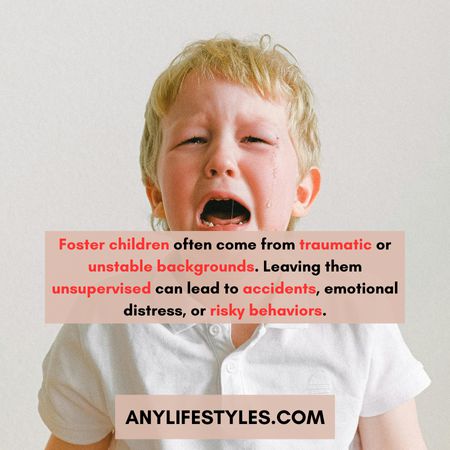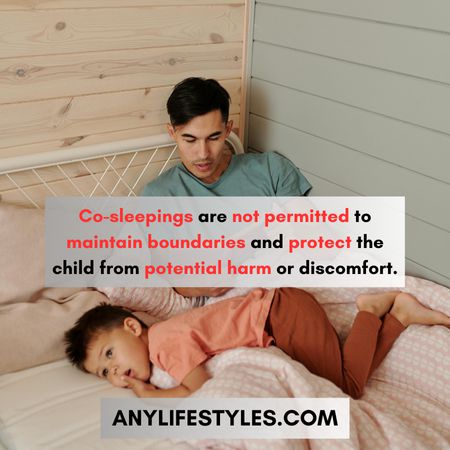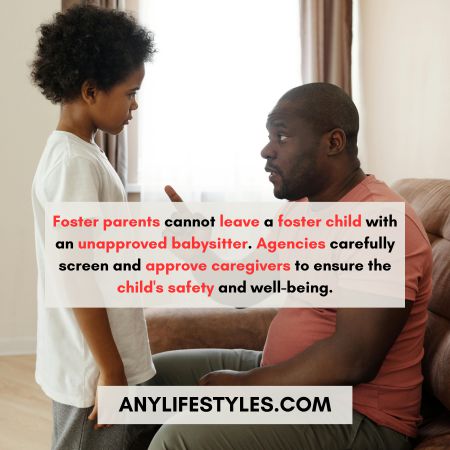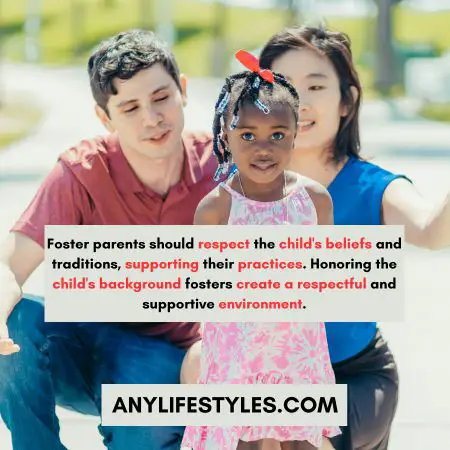What Is Foster Parenting?
Foster parenting is the act of providing temporary care and a stable environment for children who cannot live with their biological families. This can be due to various reasons such as abuse, neglect, or family crisis.
Foster parents play a crucial role in the child welfare system by offering a safe and nurturing home where children can heal and grow. They work closely with social workers, therapists, and educators to support the child’s development and emotional well-being.
The goal of foster care is often to reunite the child with their biological family when it is safe to do so or to find a permanent adoptive family if reunification is not possible.

What Are Foster Parents Not Allowed to Do?
Fostering a child is a journey filled with love, responsibility, and numerous rules and guidelines. As a foster parent, it’s crucial to understand what foster parents are not allowed to do to ensure the safety and well-being of the child in your care.
Breaking the rules as a foster parent can lead to serious consequences, including revocation of foster parenting rights and even jail time. Therefore, it’s important to familiarize yourself with these guidelines before committing to becoming a foster parent or while raising a foster child.
These guidelines protect both the foster parent and the child’s rights, ensuring the child’s best interests remain a priority.
10 Things That Foster Parents Are Not Allowed to Do
10 Things That Foster Parents Are Not Allowed to Do tells us important rules that foster parents must follow when taking care of foster children.
By following the given rules, foster parents can make sure the children they’re looking after are safe and happy, helping them grow up well.
1. Leave Them Alone Without Supervision
One critical aspect of what foster parents are not allowed to do is to leave foster children alone without proper supervision. Ensuring constant supervision is vital for the child’s safety and well-being.
Foster children often come from backgrounds that may include trauma or instability, making them particularly vulnerable. Leaving them unsupervised can lead to accidents, emotional distress, or risky behaviors.

Foster parents must always be present or ensure that a responsible adult is available to supervise the child, especially for young children or those with special needs. This vigilance helps create a stable and secure environment, allowing the child to feel safe and supported.
2. Sharing Your Foster Children’s Names or Photos on Social Media
Sharing your foster children’s names or photos on social media is something foster parents are not allowed to do. It’s essential to respect the privacy and confidentiality of foster children to protect their identity and ensure their safety.
Posting their names or photos online can compromise their security and may violate legal and ethical guidelines. Foster parents must prioritize the well-being and privacy of the children in their care by refraining from sharing identifying information on social media platforms.
This helps maintain trust and respect within the foster care system while safeguarding the children’s rights and dignity.
3. Refusing to Vaccinate Foster Children – What are Foster Parents Not Allowed to Do
Refusing to vaccinate foster children violates foster parents’ responsibilities. Vaccinations are essential for preventing diseases. By refusing them, foster parents risk the child’s health and public safety.
Foster parents must prioritize their children’s health by following vaccination schedules. Refusing vaccines ignores medical advice and harms children, leading to legal consequences.
4. Allowing Co-Sleeping Arrangements with A Foster Child
Allowing co-sleeping arrangements with a foster child is not allowed for foster parents. Co-sleeping, where the child sleeps in the same bed as the adult, can pose risks to the child’s safety.
Co-sleepings are not permitted to maintain boundaries and protect the child from potential harm or discomfort.

It’s essential for foster parents to follow these guidelines to create a secure environment for the foster child’s growth and development.
5. Moving To Another State or Country – What are Foster Parents Not Allowed to do
Moving to another state or country is something foster parents are not allowed to do without proper authorization. State or regional authorities regulate foster care, and relocating without permission can disrupt the placement and support system for the foster child.
It’s crucial for foster parents to follow legal procedures and obtain approval from the relevant agencies before considering such a move. Failure to do so can result in serious consequences, including the termination of foster parenting rights.
Therefore, foster parents should always consult with their caseworker or agency before making any significant changes to their living arrangements.
6. Leaving a Foster Child with an Unapproved Babysitter
Leaving a foster child with an unapproved babysitter is not allowed for foster parents. Foster care agencies carefully screen and approve individuals who can provide care for foster children to ensure their safety and well-being.

Allowing an unapproved babysitter to care for the foster child can pose risks and may not meet the standards set for the child’s care. Foster parents must adhere to guidelines and regulations to protect the foster child from potential harm or neglect.
It’s essential to always use approved caregivers designated by the foster care agency to maintain the child’s security and stability.
7. Altering The Appearance of a Foster Child Without Permission
Foster parents are strictly prohibited from altering the appearance of a foster child without permission. This includes changes such as cutting their hair, dyeing it, or making alterations to their clothing or accessories.
Foster children often come from backgrounds where stability and consistency are crucial for their well-being. Any changes to their appearance without proper authorization can cause distress and disrupt their sense of identity and security.
Foster parents must respect the child’s autonomy and seek permission from the appropriate authorities before making any alterations. Upholding these guidelines ensures the foster child’s physical and emotional safety and promotes a supportive environment for their development.
8. Taking Your Foster Child’s Phone Away from Them
Removing their phone without proper authorization can cause distress and disrupt their sense of security and communication. Foster parents must respect the child’s privacy and autonomy and only intervene with their phone usage when necessary and with appropriate permission.
9. Restrictions on Travel
Restrictions on travel are essential guidelines that foster parents must adhere to. Foster care agencies typically have specific rules regarding travel with foster children, aimed at ensuring the child’s safety and well-being.
Foster parents are generally not allowed to travel with foster children without prior approval from the relevant authorities. This includes domestic and international travel, as well as overnight stays away from the child’s usual residence.
Foster parents must always communicate their travel plans to their caseworker or agency and obtain permission before making any travel arrangements involving the foster child.
10. Impose Beliefs or Practices
Foster parents are not allowed to impose their beliefs or practices on foster children. This includes religious, cultural, or personal beliefs that may differ from the child’s own background or preferences.
Foster children come from diverse backgrounds and may have their own established beliefs and traditions. Imposing new beliefs or practices can cause confusion, distress, and a sense of loss of identity.
Foster parents should respect the child’s existing beliefs and support them in practicing their own traditions. By honoring the child’s background and allowing them to maintain their personal beliefs, foster parents help create a respectful, and supportive environment.

Conclusion – What are Foster Parents Not Allowed to Do
In summary, understanding what foster parents are not allowed to do is crucial for everyone. These guidelines, which cover areas from co-sleeping to prohibiting changes to a child’s name or sharing their details publicly, serve a vital purpose.
They protect the safety, respect, and dignity of foster children, preserving their identity and well-being. By adhering to these rules, foster parents play a key role in providing a stable, nurturing, and safe environment for the children in their care.
Foster parenting is a unique and challenging experience with its own set of rules. These regulations should not deter you from embarking on your foster parenting journey. Instead, they ensure that you can provide the best possible care for your foster child.





